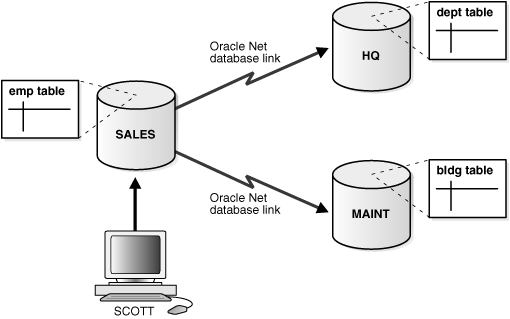8
2012
What is a Distributed Database?
One of the exemplary models of database management systems is the distributed database. Distributed database is the database that is under the command of a central database management system in which certain storage tools are not installed in a single CPU. The distributed database is installed in multiple computers located in the same location or these computers are located in different locations but under interconnected computers. In a distributed database, data are shared through partition fragments, and these fragments can be produced. Moreover, distributed database have proven to be very significant to businesses. With the use of fragmentation and replications, users will be able to secure pertinent data without compromising other applications.
How is Distributed Database Used?
Distributed database is utilized or shared in two ways. Users can use them in local applications or in global applications. When users are utilizing local applications, the database will not require any information or data from other sites. On the other hand, users who are using the global applications will require information from other sites.

When using the distributed database, users must provide utmost care to ensure transparency of transaction and distribution. Whenever distribution across databases is used, users must have the opportunity to view and access these important data. Moreover, each transaction must have transparency across databases.
Advantages and Disadvantages of Distributed Database
Distributed database have provided significant benefits to its users, but nonetheless, it also has its drawbacks that the user has to consider.
Here are the advantages of distributed database:
- Shows organizational structure of data. With the use of the distributed database, users will have access to database fragments, which are essentially located in one central database.
- Independent function. By using the distributed database, users are allowed to segregate common data and manipulate them without compromising the other applications.
- Great availability. The users will be allowed to manipulate other parts of the system if in case a certain portion of the system declines it. A problem in one database will not affect the entire database, but only a fragment of it.
- High-quality performance. With the use of the distributed database, extraction, manipulation as well as storage will definitely be more effective and more efficient. Moreover, users will have the convenience of locating and retrieving the data form the greatest part of the system. Distributed database will create the balance among data servers.
- Cost-efficient. By using the distributed database, users, especially businessmen, will gain more and experience the best services while, at the same time, spend less. Distributed database is cost-efficient because users can use a network of small computers with only a single database.
Here are the Disadvantages of Distributed Database:
- Complicated. Since the distributed database requires the transparency of data, the database management system will require extra work to strictly follow this rule. Because of the number of small computers to be maintained, the database system will need extra work and energy.
- Security. Since other remote sites are not centralized, data fragments are at risk for fraud. That’s why data fragments as well as remote sites should be secured appropriately.
- Lack of values. There are still insufficient tools available in the market to convert a central database system to a distributed database.
Further readings
Advertisements
Recent Posts
- What is a Disaster Recovery Data Center
- What is a Relational Database?
- What is a Flat File Database?
- What is a DSN or Database Source Name?
- What is a Disaster Recovery Plan?
- What is an Open Source Database?
- What is Disaster Recovery?
- What is a Database Cluster?
- What are Database Servers?
- What are Database Forms?

 An article by
An article by 




